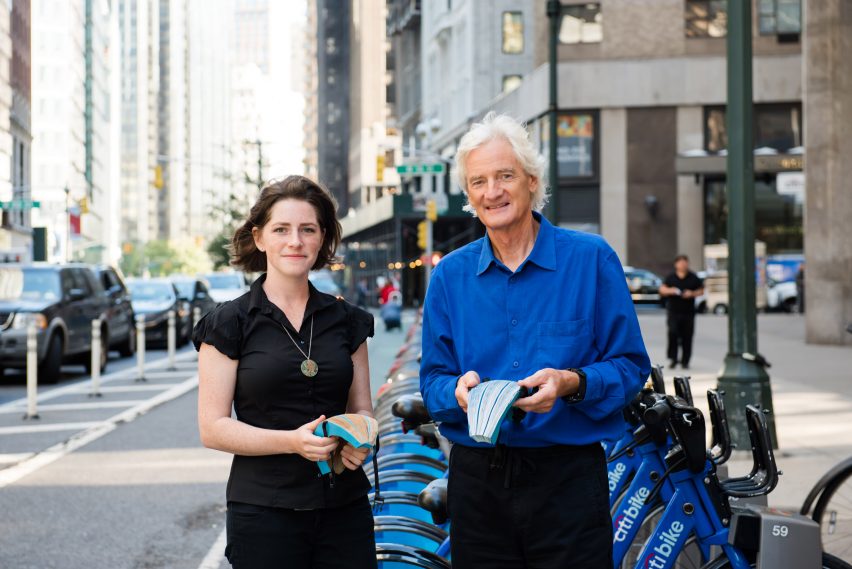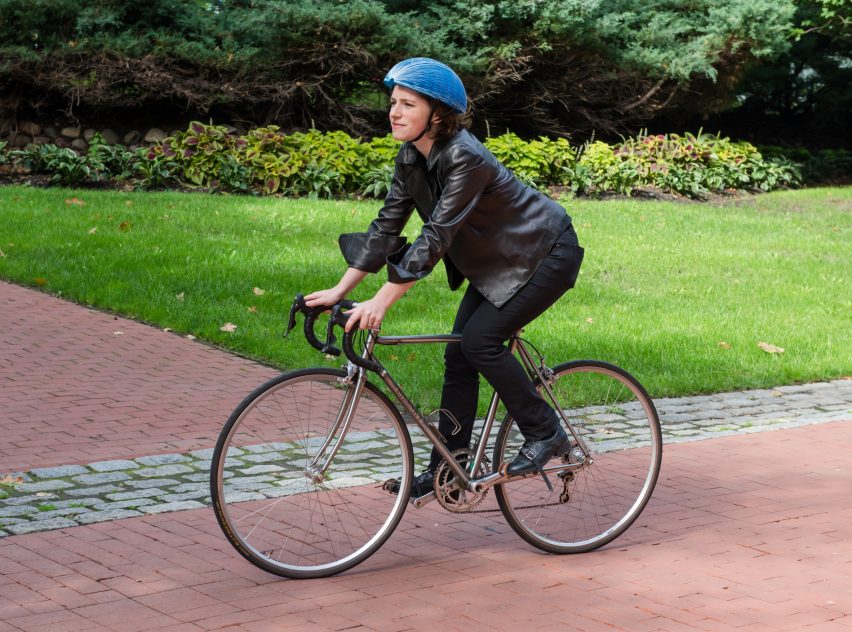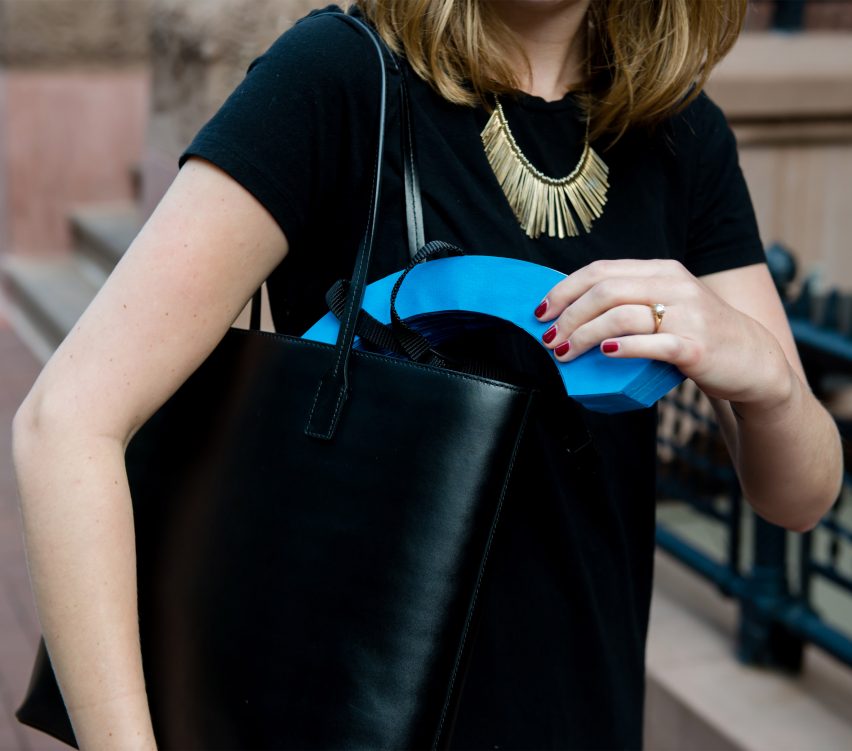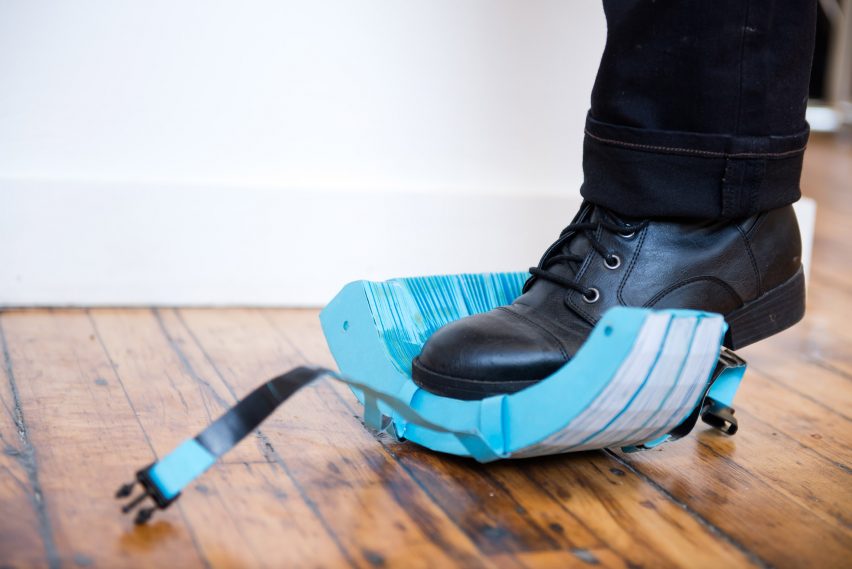Foldable paper cycling helmet wins James Dyson Award
A recyclable, collapsible helmet that could be sold at bike-share stations has been named this year's winner of the James Dyson Award.
Isis Shiffer, a graduate of the Pratt Institute of Design in New York, made the EcoHelmet from layers of recycled paper woven into a honeycomb-shaped structure.

While the helmet keeps its shape to protect the cyclist's head as it is being worn, when it is removed, the radial structure allows the helmet to concertina into a flat object.
To make it waterproof, it has been covered in a biodegradable coating that protects it in the rain for up to three hours.

"EcoHelmet has been through several stages of development to arrive at a design that both works and looks good," said Shiffer. "Early prototypes worked, but looked like pineapples; intermediate prototypes looked great and fell apart."
"The final, three-block design is fully functional and echoes the leather helmets of the 1970s," she added. "It was important to me to keep the price as low as possible and the look as universally appealing as I could."

To test the helmet, the designer took it to a crash lab at Imperial College London, where it passed the European safety standards.
"They had a European standard helmet crash set-up that allowed me to gather enough data on EcoHelmet's proprietary honeycomb configuration to know it was viable and worth developing," she told Sky News.

To get the design onto the market, where she hopes it will be sold at bike-share stations for £4, Shiffer is working on creating custom machinery that could produce the radial honeycomb weave at mass quantities.
James Dyson, who recently announced he was opening his own university to bridge the UK engineering skills gap, said that the EcoHelmet solves an "obvious problem in an incredibly elegant way".

He set up the James Dyson Award, which is open to university-level design students and recent graduates, in 2002. It runs in 22 countries, and the national winners compete for the international award, taken out this year by Shiffer.
Shiffer will receive £30,000 for winning the competition, which last year was awarded to a portable circuit-board printer by a team of four Canadian engineering students from the University of Waterloo.
Last year's UK edition of the James Dyson Award was given to prosthetics startup Open Bionics, which developed a robotic hand that could be a cheaper and more easily produced alternative to current prosthetics.
Previous winners of the international James Dyson Award include a fishing net that filters out young and endangered fish and an inflatable baby incubator.